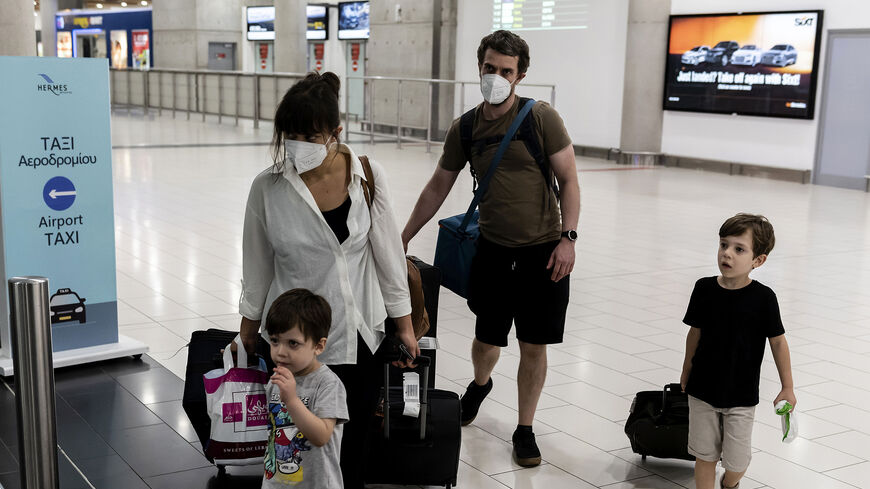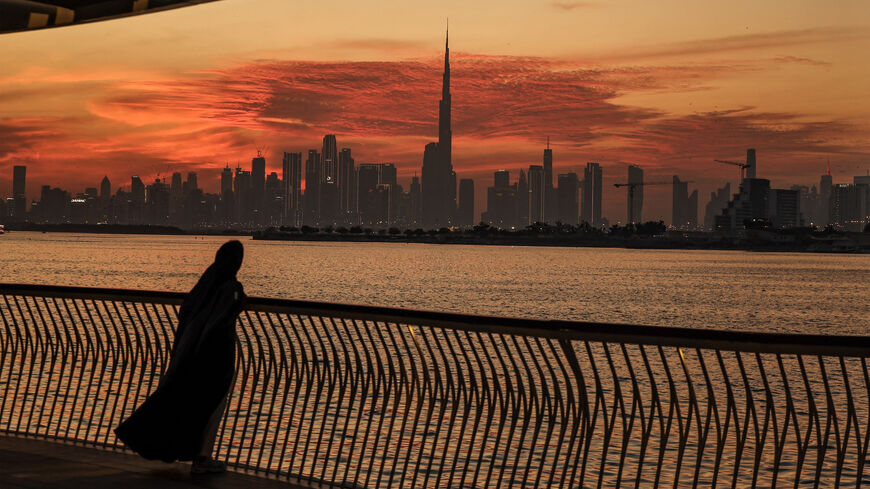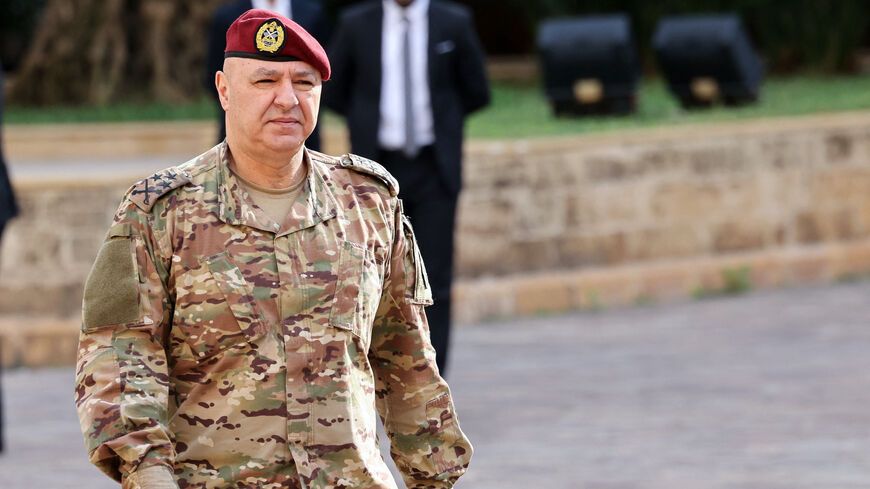Lebanese play explores struggle between exile and staying in Lebanon
“Tarboush Jedde Maallak” is currently playing in Beirut, bringing to life the enduring struggle of exile that has resonated with every Lebanese for nearly five decades.

BEIRUT — A Lebanese play appeared at Theatre Monot in Beirut on Wednesday, bringing to life the enduring struggle of exile that has resonated with generations of Lebanese for nearly five decades.
Written by Lebanese actress and screenwriter Marwa Khalil and directed by Riad Chirazi, “Tarboush Jedde Maallak” is a romantic comedy that navigates themes of departure and survival, weaving humor and nostalgia to reflect the Lebanese collective memory of emigration while celebrating resilience.
Reflecting its success, the 75-minute play, which premiered Sept. 12, has now been extended until Oct. 5, as it resonates with every Lebanese who has faced the never-ending conflict of whether to stay or leave amid the crises and wars.
"Tarboush Jedde Maallak" tells the story of Hala (played by Khalil) and Ibrahim (played by Junaid Zeineddine), two childhood friends who grew up in a shelter in the 1980s during the Lebanese civil war. Their relationship eventually blossoms into a love story marred by the sounds of explosions, instability and insecurity, forcing Hala and her parents to leave for Paris.
What follows are constant returns and departures as Hala moves from Paris to Canada to Dubai, returning to Beirut during brief periods of stability followed by disappointment. The play depicts Ibrahim as the one who stays, never losing faith in his country.
Set between 1975 and 2025, the play follows the ups and downs of Hala’s and Ibrahim’s journeys — much like Lebanon’s turbulent history — navigating their daily lives during the civil war; the Israeli invasion in 1982; the 1989 Taif Agreement that marked the beginning of the end of the civil war; the 17-day Israeli military offensive against Hezbollah in 1996; the 2000 Israeli withdrawal from southern Lebanon; the 2005 withdrawal of Syrian troops from Lebanon; the 2006 Israel-Hezbollah war; the 2019 financial collapse and ensuing antigovernment protests; and finishes with the 2020 Beirut port blast and the recent 13-month Israeli war that ended in November 2024.
The audience is left with a familiar feeling: the constant dilemma of staying in their country and hoping for a better future, or leaving in search of security and peace of mind abroad — an internal conflict every Lebanese has faced at some point in their life.
"Tarboush Jedde Maallak" (“My grandfather’s fez is hanging”) refers to the popular saying “Tarboush Jedde Maallak Aal Toute” ("My grandfather’s fez is hanging on the mulberry tree"), which means that one’s roots are tied to the homeland. The omission of “the mulberry tree” from the play’s title could suggest that Lebanon’s fate remains suspended and uncertain.
Lebanon’s struggle with emigration
Lebanon’s history is marked by several waves of migration. In the late 19th century, when the country was under Ottoman rule, hundreds of thousands began leaving for the Americas in search of job opportunities. Famine, persecution and the devastation of the world wars later drove even more Lebanese to seek better lives abroad.
Another mass departure occurred during and after the Lebanese civil war, and again following the 2019 economic crisis and the political and security turmoil that ensued. While many returned, others settled abroad — mainly in Canada, Australia and some countries in Europe, including France and Germany.
Lebanon is believed to have one of the largest diaspora populations in the world, with the number of Lebanese and their descendants living abroad far exceeding the local population.
While there are no official statistics on emigration, studies and estimates put the number of Lebanese expats and their descendants at between 4 million and 15 million, compared to 5.8 million Lebanese living in their country.
The largest concentration of people of Lebanese birth or descent is in Brazil, with estimates from the Brazilian Institute of Geography and Statistics claiming there are 2 million with Lebanese ancestry in the country.
Other countries with large Lebanese communities include the United States, with around 500,000 people of Lebanese origin according to the US Census Bureau; France, with between 200,000 and 300,000; Australia, where about 250,000 people are of Lebanese heritage — including approximately 87,000 born in Lebanon, according to the 2021 Australian census; and Saudi Arabia, which hosts an estimated 300,000 Lebanese workers, according to the Lebanese Embassy in Riyadh.
Tens of thousands of Lebanese have also settled on the African continent, such as in Cote d'Ivoire, Ghana and Nigeria.
Months before the Israel-Hezbollah war erupted in October 2024, the Arab Barometer interviewed 2,400 Lebanese citizens between February and April about their migration preferences. The poll found that 38% of those interviewed expressed a desire to leave the country — the same proportion recorded in 2022 but up from 26% in 2018.
According to statistics provided by the Beirut-based Information International regional research and consultancy firm in 2022, the number of Lebanese emigrants from the beginning of 2020 until mid-November 2021 reached 77,777 individuals, compared to 17,721 individuals in 2020.
Between 2018 and 2021, 195,433 Lebanese emigrated and traveled from Lebanon, according to the same data.







